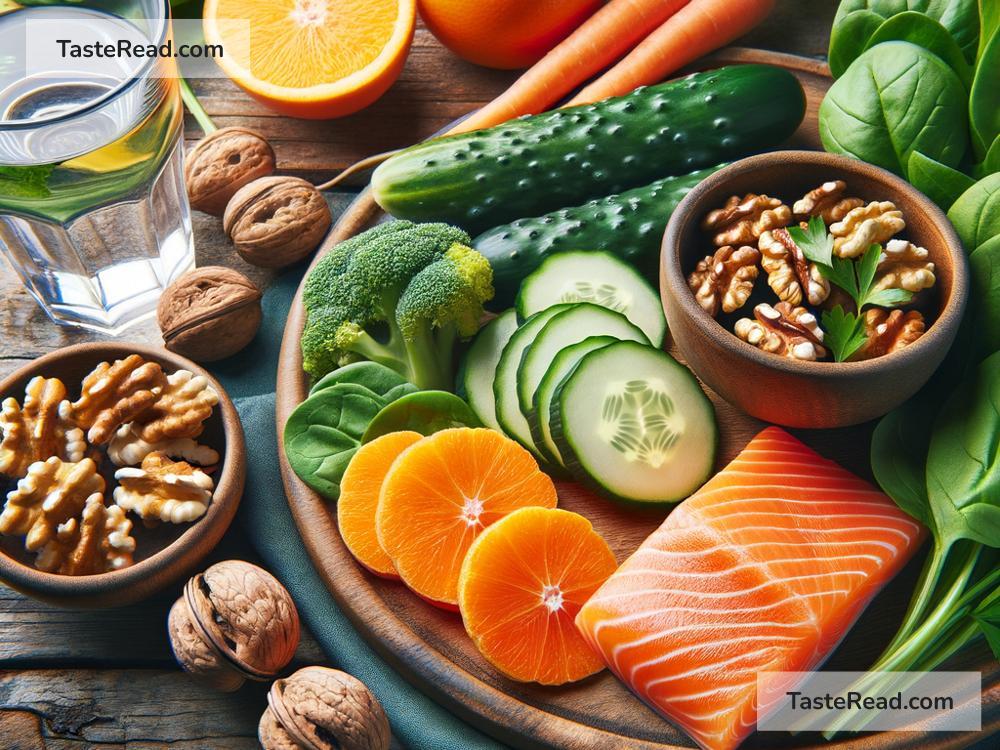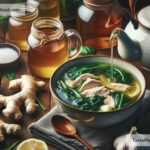Foods That Promote Tear Production: Keep Your Eyes Moist and Healthy
Have you ever felt like your eyes are dry, itchy, or uncomfortable? Many of us experience dry eye syndrome, especially if we spend long hours staring at screens, spend time in air-conditioned spaces, or live in dry environments. Tears are vital for keeping our eyes healthy, protecting them from infections, and keeping them moist. If you’re looking for ways to improve your natural tear production, your diet can play a big role! In this blog, we’ll talk about foods that promote tear production — and how to eat your way to happier and healthier eyes.
Why Are Tears Important?
Before diving into foods that help with tear production, let’s first talk about why tears are so important. Tears aren’t just salty water; they contain layers of oil, water, and mucus. This unique composition helps hydrate your eyes, protect them from germs, clear out debris, and provide nourishment for the surface of your eyes. If you don’t produce enough tears, your eyes may feel dry, gritty, and sensitive to light. Over time, dry eyes might even damage your corneas, the protective outer layer of your eyes.
Luckily, what you eat may help boost the production of tears. Certain nutrients in foods support eye health and help your body produce the right type and amount of tears.
Foods That Promote Tear Production
Here are some foods that can help hydrate your eyes and improve natural tear production:
1. Foods Rich in Omega-3 Fatty Acids
Omega-3 fatty acids play a key role in keeping your eyes healthy. These healthy fats reduce inflammation in your tear glands, enabling them to produce better-quality tears. They also help with the oily layer of your tears, which prevents them from evaporating too quickly.
What to eat:
– Fatty fish like salmon, tuna, mackerel, and sardines
– Flaxseeds and flaxseed oil
– Chia seeds
– Walnuts
If you’re not a fan of fish, try plant-based omega-3 sources like chia seeds or walnuts. Omega-3 supplements can also help, but it’s best to consult a doctor before starting them.
2. Fruits and Vegetables Packed with Vitamin A
Vitamin A is essential for good eyesight and tear production. It helps your eyes produce mucus, a key component of tears. Without enough vitamin A, your eyes may feel dry, and you could even develop night blindness.
What to eat:
– Carrots (a classic for eye health!)
– Sweet potatoes
– Spinach
– Kale
– Mangoes
– Red bell peppers
Make sure to include brightly colored fruits and vegetables in your meals — they’re often the best sources of vitamin A.
3. Foods High in Vitamin C
Vitamin C is an antioxidant that supports the blood vessels in your eyes. Strong blood vessels ensure that your tear-producing glands get the nutrients they need to function properly. Vitamin C also helps reduce oxidative stress, which can negatively impact your eye health.
What to eat:
– Oranges
– Strawberries
– Kiwi
– Grapefruit
– Tomatoes
– Broccoli
These citrus fruits and veggies are refreshing and help keep your eyes hydrated and healthy.
4. Vitamin E-Rich Foods
Vitamin E is another powerful antioxidant that fights damage caused by harmful free radicals. It helps protect your eye tissues, including the glands responsible for tear production.
What to eat:
– Almonds
– Sunflower seeds
– Hazelnuts
– Avocado
Snack on a handful of almonds, add sunflower seeds to your salad, or spread some avocado on your toast — easy, delicious ways to boost your Vitamin E intake.
5. Drinking Enough Water
Okay, water isn’t technically a food, but staying hydrated is one of the most important things you can do for healthy tear production. Your tears are mostly water, so dehydration can lead to dry eyes. Aim to drink at least 8 glasses of water a day, and add hydrating foods to your meals.
Hydrating foods to eat:
– Cucumber
– Watermelon
– Celery
– Zucchini
6. Foods Rich in Zinc
Zinc is a mineral that helps your body transport vitamin A from the liver to your eyes, where it’s used to create protective pigment on the retina. Zinc also supports tear glands and overall eye health.
What to eat:
– Shellfish like oysters and crab
– Turkey
– Eggs
– Pumpkin seeds
– Legumes like chickpeas and lentils
If you’re vegetarian, zinc-rich foods like pumpkin seeds and legumes are a great choice.
Healthy Habits Matter Too
While these foods can help improve your tear production, don’t forget to combine your diet with healthy lifestyle habits. Blink often when using screens, take regular breaks, and don’t forget to wear sunglasses to protect your eyes from wind and harsh sunlight. If your dry eyes persist, make sure to consult an eye doctor, as there may be an underlying condition that needs attention.
Conclusion
Dry eyes can be irritating, but adding the right nutrients to your diet can make a big difference. Foods rich in omega-3 fatty acids, vitamins A, C, and E, zinc, and water content help promote natural tear production and keep your eyes comfortable and moist. Start incorporating some of these eye-friendly foods into your meals, and you might notice your eyes feeling fresher and healthier over time. Remember — what you eat doesn’t just affect your stomach; it also impacts your vision! So eat well and see the benefits, literally.
Your eyes will thank you! 👁️🍎


